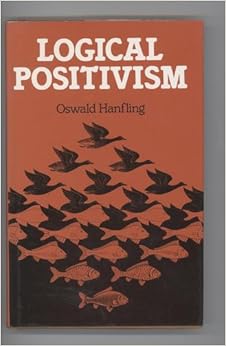
But its influence was felt much longer in both places, primarily for its emphasis on three things: empiricism, empiricism, empiricism.Īyer continued to publish philosophy until the mid-1980s. Logical positivism had a longer life in North America, to which several of its members emigrated. The profession of philosophy disappointed him, and later, he found it difficult to keep up "in logic and the philosophy of maths and sciences" (262). During the late 1940's, Ayer wrote mostly for London literary and arts magazines. He had mysteriously passed "from being a young Turk to being, at the age of thirty-five, to almost an elder statesman, without ever having known the plenitude of office'" (198).

When Ayer returned to Oxford in 1945, he discovered that "the climate had changed before the conflict he had been the leader of the avant-garde now the brighter students and the young dons looked on logical positivism as old hat. (He spent a significant part of it in a Mediterranean villa, a Park Avenue apartment, "a palatial home" in Paris lent him by Guy de Rothschild, and in the best restaurants with friendly women.) No major British philosopher was championing Logical Positivism between 19.

Language, Truth, and Logic was published in 1936, and Ayer "went off to war" in 1940, to speak loosely. Logical positivism in Britain lasted for only about a decade (1935-46). Unfortunately, its founding principle, the principle of verifiability, was irremediably flawed, notwithstanding Ayer's best efforts, notably in the Preface to the second edition of 1946.

For twentieth-century British philosophy, Language, Truth, and Logic was both a philosophical Declaration of Independence (from metaphysics) and the Constitution for a new philosophy. Ben Rogers nicely intertwines the facts of Ayer's day-to-day life-which is not to say "quotidian," given Ayer's ego and libido-with his philosophical peregrinations.Īlthough Ayer picked up logical positivism in Vienna when attending sessions of the Vienna Circle, he had accepted the main lines of an empiricism and positivism earlier and on his own. Almost everyone now knows the story of how he saved Naomi Campbell by going a round with Mike Tyson. Ayer (1910-89) had the misfortune, for a philosopher, to write his most influential book, Language, Truth, and Logic, when he was in his twenties, even though he continued to publish into his seventies, and to have his nonphilosophical life overwhelm his philosophical one.


 0 kommentar(er)
0 kommentar(er)
